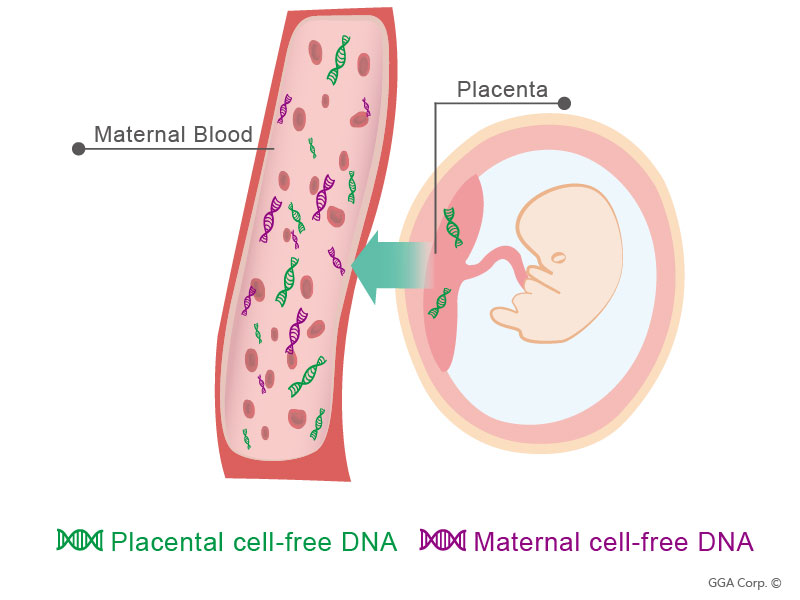Non-invasive prenatal tests (NIPT) permits doctors to discover chromosomal disorders, which include Down syndrome and aneuploidies that affect the sex Chromosomes (trisomy 21, trisomy 18, as well as trisomy 13). NIPT also screens for microdeletions of chromosomes, which can result in conditions like Turner syndrome Klinefelter syndrome, as well as triple X and XYY syndromes.
It is a helpful tool that can help couples and wives make educated choices about the pregnancy they are planning. But, the results of the test can also lead to anxiety and even stress for certain sufferers.

Prenatal Screening for Rare Genetic Disorders
The NIPT method is becoming a more common screening technique for chromosomal anomalies that may cause genetic problems. The procedure uses a small amount of mother’s blood for detection of smaller DNA fragments missing (microdeletions) in specific regions of chromosomes.
Advanced NIPT tests use sequencing technologies that can also detect microduplications as well as the insertions. It can also screen for unusual chromosomal disorders, such as certain syndromic conditions like DiGeorge syndrome, as well as deletions of the X chromosome that can lead to Turner as well as Klinefelter syndromes.
The NIPT test can detect Down syndrome, as well as common trisomies such as trisomy18 (Edwards) and trisomy 13 (Patau). It also screens for aneuploidies of the X or Y chromosomes, such as Turner syndrome or an XXY (Klinefelter syndrome). NIPT is also able to determine whether the fetus is male or female when it is in the early stages of the pregnancy.
Non Invasive Prenatal Testing for Rare Conditions
The test is based on the analysis of circulating, cell-free DNA from the fetus (cff-DNA) within the mother’s bloodstream, is an effective alternative to intimate prenatal tests, also known as amniocentesis and chorionic villus sampling. These procedures have a 1-2% risk of miscarriage.
The NIPT can detect aneuploidies such as trisomies that cause Down syndrome as well as Edwards syndrome. The same is true for the microdeletions in chromosomes which cause Patau as well as Kleinfelter syndrome. It also can determine the sex of a woman at nine weeks gestation, much prior to ultrasound.
For those women whose tests show a significant probability of contracting a rare disorder The results may be confirmed by chorionic villus sampling. However, the test has very low false positive rates. Moreover, the detection of some rare conditions may be complicated by a low number of fetuses or other factors, such as maternal obesity or certain autoimmune disorders, that affect the availability of placental cf-DNA.
Detecting Rare Genetic Disorders by NIPT
NIPT has been able to detect chromosomal anomalies like trisomy 21 (Down syndrome) trisomy 18 as well as trisomy 13, all of which are caused by extra or missing copies of particular chromosomes. It is also beginning to be utilized to detect conditions that arise from genetics and are due to changes in one or more genes.
These alterations are caused by small duplications and deletions that affect specific parts of the genome. They are among the easiest to detect. A few advanced NIPTs will also test for uncommon conditions for instance, Turner syndrome and 22q 11.2 deletion syndrome.
Since it is relatively low cost and noninvasive nature The NIPT xet nghiem nipt tai ha noi procedure could use in LMICs in conjunction with screening for maternal serum and ultrasound tests. Implementing this approach requires technological advancement that is geared towards low-resource environments and instruction for health workers in the community to conduct blood draws as well as analyze ultrasound images.
NIPT Benefits for Expectant Parents
When pregnant women are in need of NIPT, it is usually recommended based on Midwifery and OB-GYN guidelines. It’s best to contact your insurance provider to learn the extent to which NIPT is covered as well as how much out-of-pocket expenses are.
It is a test for screening which will tell you if one is more at risk of certain genetic illnesses. However, it can’t diagnose the disease. A 2016 study found that NIPT shows a high degree of sensitivity to trisomy 21 as well as other typical chromosomal anomalies.
The test can also identify rare genetic diseases that have a family connection including cystic fibrosis as well as Duchenne muscular dystrophy. They also arise at conception, for example, thanatophoric Dysplasia. These conditions were only diagnosed using extreme tests, such as amniocentesis, or CVS. NIPT could help avoid these costly procedures and increase the likelihood of having a positive diagnosis.
Challenges in NIPT for Rare Genetic Disorders
Noninvasive prenatal screening (NIPT) analyses fetal cell-free DNA that is found in blood of the mother. The procedure has become popular since it permits the detection of aneuploidies of the chromosome and identifies sex with a low risk of miscarriage. NIPT is now more accurate in recent years and now includes detection of microdeletions greater than 7 Mb, as well as singular gene diseases caused by mutations or autosomal dominant inheritance.
Nevertheless, there is still plenty of work to be completed to improve the accuracy of the NIPT. In particular, the PPVs for different aneuploidies as well as single gene disorders vary widely among studies and patient cohorts which makes counseling difficult.
NIPT is currently too expensive for LMICs, but continued sequencing cost declines could reduce the cost and make it more affordable. Health workers in the community are competent to draw blood, therefore it is simple for them to implement the NIPT.

